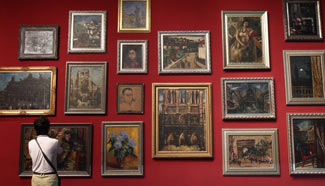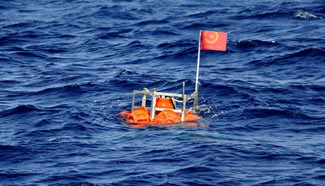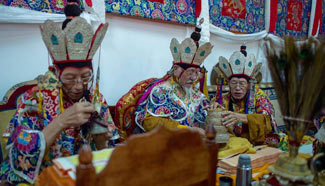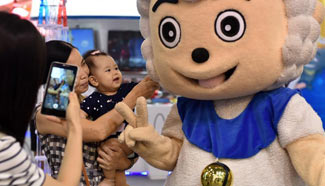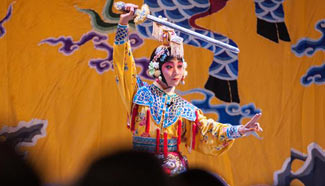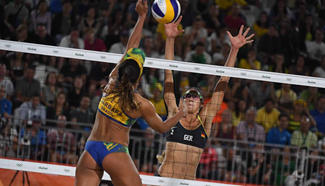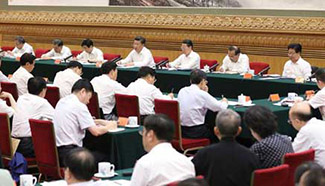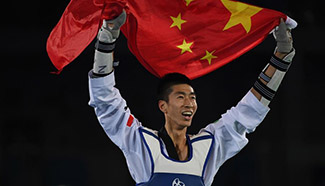by Hamada al-Hattab, Omar Othmay
GAZA, Aug. 18 (Xinhua) -- Around 250 Palestinian children from the Gaza Strip participated Wednesday in an exhibition of Palestinian cultural heritage to help preserve the Palestinian national legacy.
The two-day event is organized by the United Nations Relief and Works Agency for Palestine Refugee in the Near East (UNRWA) in the southern Gaza Strip city of Khan Yunis.
Inside an UNRWA school, broad collections of traditional handmade cross-stitched items and pottery works were displayed.
Palestinian cuisine and family-oriented activities characteristic of Palestinian legacy were also showcased.
The uniqueness of the exhibition was that its activities were performed by schoolchildren.
The exhibition design was shaped like a traditional Palestinian village, conveying to children the background of Palestinian peasants' lives and how peasants use their animals for transportation and cultivation.
Inside a virtual village, a traditional folk wedding was performed by a group of children, showing types of traditional ceremonies that have been dormant for decades, featuring folk dances and traditional outfits.
In each exhibition corner children displayed traditional clay items and copper pieces from various areas of Palestine.
"I participated today to show my skills in clay pottery," said 14-year-old Mahmoud Atallah. "I'm really happy and proud to be able to create some pieces now."
Organizers believe that similar heritage events are important in helping the coming generations maintain their Palestinian identity alive, as well as learning more about Palestine.
Event coordinator Rami Abu Saada told Xinhua the aim of the event is to keep the memory of childrens' grandparents and heritage alive with children.
"Actually children were unaware about several old tools that their grandparents used," he said.
Abu Saada said the children learned a lot about their heritage and culture, in addition to items that are no longer in use, such as old kitchen machines.
The event also celebrated the end of the UNRWA's three-week summer games program.
The summer program served over 165,000 registered refugee children in the Gaza Strip, which has been under an Israeli blockade since the Islamic Hamas movement seized power over it by force in 2007.
The UNRWA arranges fun weeks and other events as part of its attempts and interventions to help alleviate the psychological effects of the ongoing conflicts and tough living conditions.
In recent years, Israel and Hamas engaged in three major wars, which claimed thousands of lives, including hundreds of children from Gaza.
The UN believes similar activities can improve the lives of war-traumatized children and help alleviate the nightmares many continue to suffer from.
Yossif Moussa, head of UNRWA's Fun Weeks Program, told Xinhua that Palestinian children must be treated like all other children.
"This unfair blockade imposed on children must be lifted," Moussa said. "They must have a chance to play safely."
"They must enjoy their right to play, have fun, sing, learn and dance," he said.

